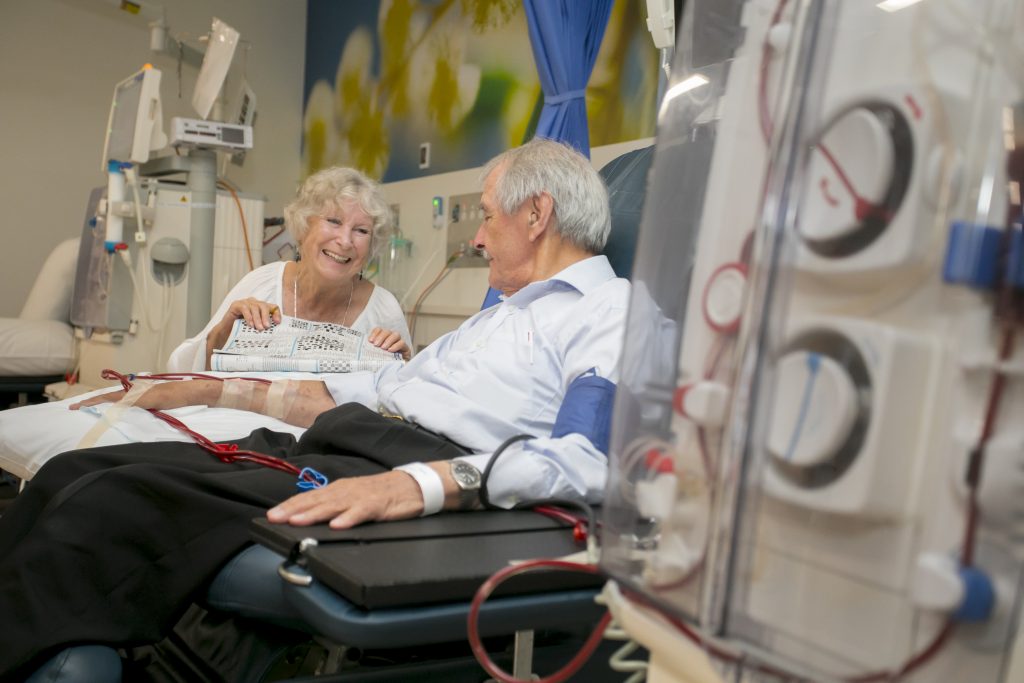Thousands of kidney transplant patients with incurable cancer may get a new lease on life thanks to new research from the Royal Adelaide Hospital and the University of South Australia.
The world-first study shows that adding immunotherapy to standard anti-rejection medication can reduce the risk of organ rejection and eliminate cancer in a quarter of patients.
A game changing combination
A combination of transplant anti-rejection drugs and immune checkpoint inhibitors not only reduced organ rejection rates to 12 per cent (from 40-50 per cent) but also eradicated cancer cells in 25 per cent of patients.
“It’s a massive advancement for kidney transplant patients; a whole new lease on life,” says renal specialist at the Royal Adelaide Hospital and UniSA researcher, Associate Professor Rob Carroll.
To stop the immune system attacking their transplants, kidney transplant recipients must forever take immunosuppressant drugs.
This immune suppression inhibits their ability to eliminate pre-cancer cells, making cancer a leading cause of death in kidney transplant recipients. The rate of cancer is three-times higher in this group, than in the general population.
In 22 patients with a renal transplant and incurable locally advanced or metastatic cancer, the study tested the efficacy of taking usual anti-rejection drugs, to protect the transplant, and adding an immune checkpoint inhibitor called Nivolumab, to attack the cancer.
Immune checkpoint inhibitors are drugs that block proteins called checkpoints. These checkpoints help keep immune responses from being too strong but can also keep T-cells from killing cancer cells. When these checkpoints are blocked, the T-cells can kill cancer cells more effectively.
The study was conducted by researchers from: the Central Northern Adelaide Renal and Transplantation Service; the Royal Adelaide Hospital; the University of South Australia; Chris O’Brien Lighthouse; the University of Sydney; the Royal Prince Alfred Hospital; and Monash University.
More on the research
Read the research paper, published in Lancet Oncology.



